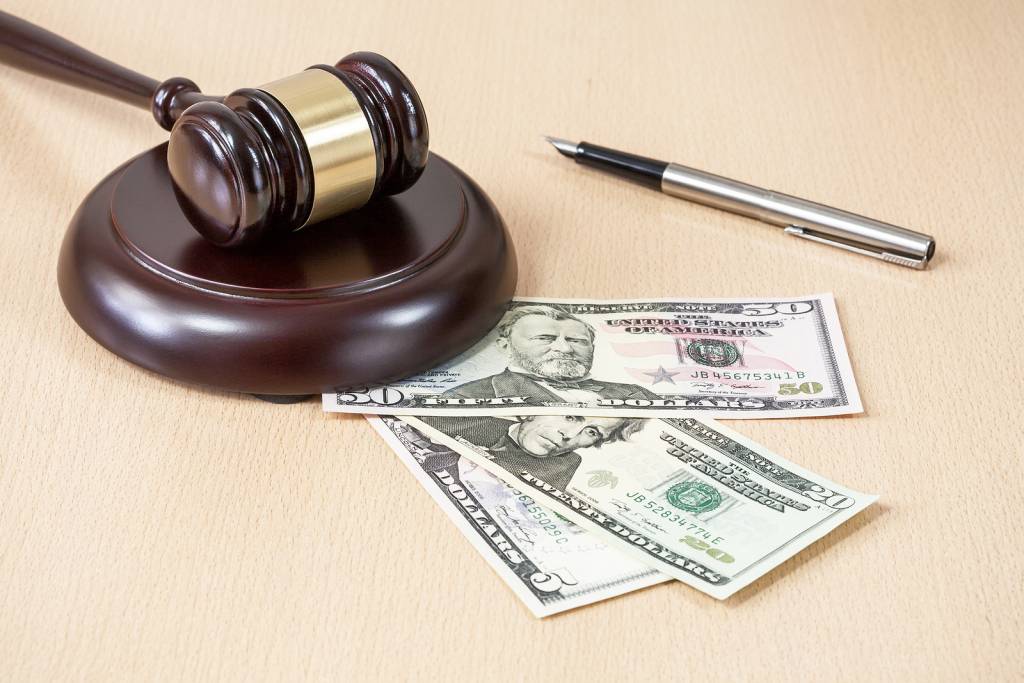In many cases, a criminal defendant in California will be able to get out of jail while his or her case is pending by posting bail. The amount of that bail will depend on a number of factors. Even if you’re innocent, you may have to post bail to be released.
If you are charged with a crime, will you be able to post bail while your own case is pending? What does bail cost? What else should you know about cash bails? How can a Los Angeles drug crimes lawyer help?
WHAT IS BAIL AND HOW DOES IT WORK?
Exactly what is bail? It’s money that a defendant deposits with the court to be released from jail. It is supposed to ensure that the defendant does not flee and appears for trial. If the defendant fails to appear, the money is forfeited, and an arrest warrant may be issued for failure to appear.

Even if a defendant is found not guilty, or if the charge is dropped or dismissed, it can take as long as twelve weeks for someone to recover a cash bail from the court after the resolution of the case. Defendants who are convicted may put the cash toward paying fines and court fees.
WHAT IS CONSIDERED WHEN BAIL AMOUNTS ARE SET?
When a California judge sets a bail figure for a defendant who is charged with a crime, these factors are taken into consideration:
- the particulars of the charge
- the risk that the defendant will flee and fail to appear at trial
- the risk to public safety
- the suspect’s prior criminal convictions
If you’re charged with a crime in Southern California, you have the right to an attorney. Exercise that right, contact an experienced Los Angeles criminal defense attorney, and do not try to act as your own lawyer. Your future – and maybe even your freedom – will be at risk.
Cash bail has been controversial in the state of California for at least several decades. Critics have charged that the bail system discriminates disproportionately against minority defendants and against those who are least able to pay bail costs.
WHAT IS THE CURRENT LEGAL STATUS OF CASH BAIL IN CALIFORNIA?
Governor Jerry Brown signed legislation in 2018 that was supposed to abolish cash bail in this state and grant judges more discretion to determine which defendants should remain behind bars while their cases are pending.
However, the fate of bail reform in California is now unclear, and it appears that the law signed by Governor Brown in 2018 may be suspended until 2020, when voters statewide may decide whether or not to overturn it.
WHY IS BAIL SO IMPORTANT FOR DEFENDANTS?
For many criminal defendants, being bailed out means that for the months – and sometimes even years – before their cases actually go to trial, those defendants are able to maintain their daily routines in their communities, go to work or school, and care for their children.
When they are out of jail, and their cases are pending, criminal defendants are also able to make better decisions – and to take their time about making those decisions – regarding their legal options and the plea bargains that they may be offered.
HOW ARE BAIL AMOUNTS PAID?
When a bail amount has been set, the defendant may be released by posting the entire amount in cash, by retaining the services of a bail bondsman, or by posting a “property bond.”

Bail is not cheap, and cash payments are rare. Most defendants work with a bail bondsman. In most cases, a bondsman loans the full bail amount to the defendant for a nonrefundable, up-front fee of ten percent.
Criminal defendants in California also have the option of paying bail with a property bond, but that is extremely rare. The property’s equity must be valued at double the bail amount or higher, and the equity must be estimated professionally for the court.
WHAT DOES BAIL COST?
How much will bail cost? Each California county uses its own bail schedule. For heinous crimes, bail may be set at a million dollars or even higher, but more typical bail amounts range from $20,000 to $50,000 for less severe offenses.

If you have been charged with a crime and you cannot pay the bail amount that has been set, or if you believe that the figure is excessive or unfair, an experienced Los Angeles criminal defense attorney can ask for a bail hearing on your behalf.
However, when a defendant is charged with a violent or otherwise serious felony, a judge typically will not drop that defendant’s bail amount below the standard, “scheduled” figure for that charge in that county.
A judge in such a case has to be presented with “good cause” or “unusual circumstances” to reduce a bail figure.
WHAT IS AN O.R. RELEASE?
A defendant may also request a release “O.R.,” meaning a release on the defendant’s “own recognizance” that involves no cash but merely a promise by the defendant to appear at trial.
With criticism of the cash bond system growing, and especially after the bail legislation signed by Governor Brown in 2018, criminal defendants are increasingly being released on their own recognizance by California judges.

At a bail hearing, a defense lawyer can sometimes persuade a judge to reduce a defendant’s bail amount or approve an O.R. release. If a defendant will agree to some terms and conditions, a release is more likely. Those terms and conditions might include requiring the defendant to:
- surrender a passport and/or driver’s license
- avoid traveling outside of the jurisdiction
- go into a treatment or counseling program
- wear a GPS tracking device or a SCRAM monitoring device
WHEN SHOULD YOU SPEAK TO A TOP DEFENSE LAW FIRM?
What you’ve read here is a general look at the bail system in California, but if you are the person who’s being charged with a crime, you’re going to need the personalized legal advice that a California defense lawyer can only provide after reviewing the specifics of your case.
You already know that you have the right to a lawyer if you are charged with a crime. A Southern California defense attorney can give anyone who is facing a criminal charge sound legal advice about bail options and the other aspects of the case.
But you’ll need to exercise your right to an attorney as soon as possible after an arrest. Your attorney will provide the legal help you need, but the first move in your defense – making the call to a reliable defense lawyer – is your move and yours alone.










